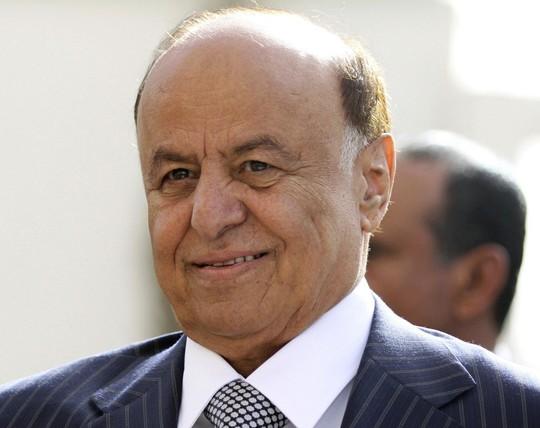 President Mansour Hadi of Yemen President Mansour Hadi of Yemen President Mansour Hadi of Yemen has agreed to a 72 hour ceasefire in the Yemen civil war. He also said the ceasefire could be extended under certain conditions. The announcement was made by Foreign Minister Abdel-Malek al-Mekhtafi on his official Facebook account:"The President agreed to a 72 hrs ceasefire to be extended if the other party adheres to it, activates the DCC (De-escalation and Coordination Committee) and lifts the siege of Taiz," The DCC is a UN-backed military commission that monitors ceasefires in Yemen. A start date for the truce has not been announced but Hadi is to meet with Ismail Cheikh Ahmed, the UN special envoy to Yemen, on Thursday to set a date. Hadi's government has been asking that there be humanitarian access to the city of Taiz. The rebel Houthis largely encircle the city with government forces having control of only one of four access routes. The Houthis took the capital, Sanaa, back in 2014 with the help of forces loyal to the former president Ali Abdullah Saleh. Although the Houthis have lost much of the south including the port of Aden, they hold most of the north and areas along the Red Sea coast. Previous ceasefires have failed. Saudi Foreign Minister al-Jubeir said the Saudis would accept the ceasefire if the Houthis agreed to it. So far there has been no response from the Houthis. Saudi-led airstrikes have been part of the campaign against the Houthis since March of last year. Several Gulf country allies have deployed troops to Yemen. The conflict has created a humanitarian disaster with an estimated 10,000 people having been killed, 3,800 of them being civilians according to UN estimates. The United States Britain, and the UN have urged both parties to declare a ceasefire. US Secretary of State, John Kerry, said in London Sunday: “This is the time to implement a ceasefire unconditionally and then move to the negotiating table. We cannot emphasize enough today the urgency of ending the violence in Yemen.” The Saudi-led coalition was recently found responsible for bombing a funeral that killed over a hundred people. At first, the Saudis denied making the strike but now are claiming it was based on false information.
0 Comments
An earlier ceasefire announced by the UN failed when the Saudis claimed they were not bound by it and began bombing again just hours after the cease fire was to take effect. It remains to be seen if the Houthis and their supporters honour this declaration.
The months of bombing and clashes has created a humanitarian disaster for Yemenis. Many have tried to flee battle zones or the country. Others are facing diminishing supplies of vital necessities and an overburdened medical system. More than 3,200 have been killed since the fighting began. An estimated 13 million are in need of food and other aid. The Saudi bombing strikes sometimes target residential areas. In a recent attack in the central city of Taiz medical sources report that 80 people were killed and another 150 other wounded. Al Qaeda in the Arab Peninsula(AQAP) has taken advantage of the conflict and chaos to control more territory, often with support from local Sunni tribes resisting the Houthi advance. The Islamic State has also shown its presence in Yemen by devastating suicide attacks in the capital and elsewhere. 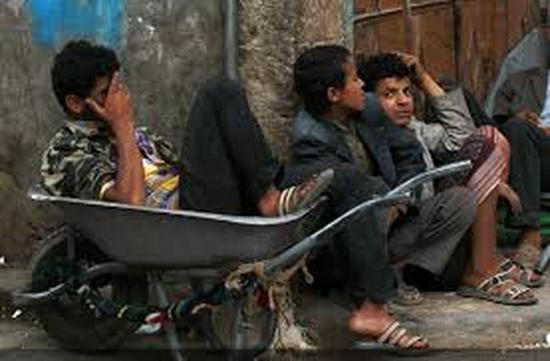 Even though many areas are free from bombing the blockade has led to shortages of everything. Meanwhile, the government-in-exile is safe away from it all in Ryadh, Saudi Arabia. One historic site has been hit and a UN compound also bombed injuring a guard and causing considerable damage. Some residential areas containing homes of relatives of former president Saleh who supports the Houthis have been bombed killing civilians. Rebel Houthi leader Zeifullah al-Shami told the Associated Press that the Hadi conditions were unacceptable and they do not address the country's humanitarian crisis. Perhaps, the Saudis will force Hadi to accept a cease fire without his conditions. Otherwise, the slaughter will continue. Al-Shami noted that talks sponsored by the UN were still ongoing in the capital Sanaa. A pro-Houthi activist said: "Those conditions are actually silly from the so-called President Hadi government. Those are the same conditions that were presented at Geneva talks and now here again.I know Houthi won’t accept any condition for withdrawal and there cannot be any precondition for ceasefire." The problem is that a UN resolution has been passed that demands that the Houthis withdraw from the areas that they have taken and lay down their arms. The power brokers that tell the UN what to do thought that they could just pass this resolution and run some bombing missions and the Houthis would fold. Now they are stuck with a hopeless client who will never get back into power and a resolution that stands in the way of any sort of rational agreement with the Houthis. Given the ability of the powerful to be inconsistent and hypocritical when it suits them the Saudis, the Gulf Cooperation Council, and the US may decide to more or less ignore the UN resolution. After all, countries such as Israel regularly ignore UN resolutions and no one pays much attention. If the parties want to help solve the humanitarian crisis which their actions have produced, they should agree to a ceasefire without setting conditions that would block a successful agreement. A Houthi activist Bukhaiti claimed that "the main source of the humanitarian crisis is the blockade by the Saudi-led coalition. He said that about 90 percent of aid is lying in Djibouti and the Saudis are not letting it enter Yemen." Since March estimates are that more than 3,000 people have been killed. AQAP has gained control of considerable territory including Mukalla the capital of Hadrahmut province. In the south local militia fighting against the Houthis are from the Southern Movement that wants an independent South Yemen or at least more autonomy. Direct support for Hadi is minimal. The Houthis have always wanted to be key players in forming a government but realize that they themselves as a Shia minority in a predominantly Sunni Yemen cannot rule by themselves. They could not have captured the territory they have without the support of ex-president Saleh and those loyal to him within the Yemeni army. Iran, which supports the Houthis, realizes this as well. It would like a political solution with a government that would give more power to the Houthis but composed of many different groups. If the Saudis and other Gulf States were willing to allow the Yemenis somewhat more independence a unity government might be possible. A unity government could deal with the increasing power not only of AQAP in Yemen but the Islamic State as well. It is in the interests of all the other parties to combine against this extremist threat and to end the disastrous civil conflict. If the Hadi government-in-exile refuses to cooperate the Saudis and other supporters should inform them that they will not receive any support. Sources: AlJazeera Business Insider Almanar Press TV
"UN Emergency Relief Coordinator Stephen O'Brien described the situation confronting the population of the Arab world’s poorest country as “catastrophic,” placing much of the blame on the Saudi-led air strikes that have devastated Yemeni cities, and Saudi Arabia’s blockade of Yemen’s ports, which have prevented not only the arrival of emergency relief supplies but also the basic flow of goods that existed before the war.
“The blockade means it’s impossible to bring anything into the country,” Nuha Abdul Jaber, Oxfam’s humanitarian program director in the Yemeni capital of Sanaa told the Guardian newspaper. “There are lots of ships, with basic things like flour, that are not allowed to approach. The situation is deteriorating, hospitals are now shutting down, without diesel. People are dying of simple diseases. It is becoming almost impossible to survive.” Earlier attempts at peace talks failed when the Hadi government in exile demanded concessions from the Houthi rebels as a condition of attending. This time, there are no preconditions. Dahllallah a-Shami, a senior member of the political wing of the Houthi rebels said the group would not accept preconditions set by other parties: We accepted the invitation of the United Nations to go to the negotiating table in Geneva without preconditions," said Daifallah al-Shami, a senior member of the rebels' political wing. Ezzedine al-Isbahi, information minister of the Saudi-backed Hadi government reported from Ryadh, the Saudi capital. that it would also send representatives to the talks in Geneva. Al-Isbahi said that the meeting would involve "consultations on implementing Resolution 2216" of the UN Security Council that was passed in April. This resolution imposed an arms embargo on the Houthis and demanded they relinquish seized territory. According to diplomats who attended a closed-door Security Council meeting the meeting will discuss a ceasefire, increased deliveries of humanitarian aid, and agreement on a Houthi withdrawal plan. There may be difficulties negotiating the withdrawal of the Houthis from territory they have captured unless the Saudis are willing to offer the Houthis a government that they find acceptable. The new vice-president appointed by Hadi may be acceptable to the Houthis as the leader of a unity government but the Houthis took power because earlier negotiations sponsored by the UN had failed to reach agreement on a government acceptable to all sides. Of course, AQAP remains outside any negotiations. The Southern Movement separatists will no doubt demand increased autonomy at the very least as a condition of their agreeing to any proposed government. At present they are fighting against the Houthis. The group wants a separate state of South Yemen as existed in the past. Sources: http://www.npr.org/2015/06/06/412445504/un-led-yemen-peace-talks-are-set-for-june-14 http://news.antiwar.com/2015/06/05/yemen-rebels-govt-both-agree-to-un-peace-talks/ http://wtop.com/politics/2015/06/un-chief-says-yemen-peace-talks-to-resume-june-14-in-geneva/
Strikes appear to be escalating ahead of a humanitarian ceasefire scheduled to begin on May 12 and to last five days. However, Houthi officials claim that they have received no formal notice of the ceasefire and could not respond until they do so. Since the Saudi air strikes began at least 1,200 people have been killed over half civilians according to the UN. Over 300,000 have been displaced and many have fled the country altogether. The crisis began when negotiations for a new government with the Houthi rebels, who had extended their area of control to the capital and west last year, broke down. The president, Mansour Hadi, resigned but later escaped house arrest and fled to Aden where he claimed to be president and tried to set up a government to rival the regime created by the Houthis in Sanaa. He was attacked and fled to Saudi Arabia to the safety of the capital Ryadh where he claims to still be the legitimate president. He has strong supporters including the Gulf Cooperation Council, Saudi Arabia, and also the United States. He allowed drone strikes and was a strong supporter of the US war on terror against groups such as Al Qaeda in the Arab Peninsula (AQAP).
AQAP are enemies not just of Hadi and his government but of the Houthis as well, since the Houthi are a Shia sect and AQAP radical Sunnis. AQAP has taken advantage of the chaos in Yemen to greatly extend their reach and power often in league with local Sunni tribes. They have over-run a number of army bases easily and captured huge amounts of weapons. They now control the province of Hadramawt and its capital Mukalla, a port city. The US supports a humanitarian pause to deliver aid to conflict areas and US Secretary of State John Kerry has been pressing the Saudis to agree to a temporary ceasefire. A huge problem for the aid effort is that the Saudis insist that they control the distribution of aid. This is totally inconsistent with the UN position that aid should never be delivered by one of the parties to the conflict. If Saudi Arabia distributes the aid it would ensure that aid went only to the areas supporting or under control of their supporters. It would also ensure that Houthis would not agree to a ceasefire. UN officials have been quite critical of the Saudi-led blockade of Yemeni ports, designed to prevent any weapons from reaching the Houthis. The searches have created huge delays in delivery of fuel and food particular in areas controlled by Houthis. Johannes Van Der Klaauw, UN humanitarian coordinator for Yemen said: “We urgently need a resumption of commercial imports of critical goods, such as fuel, medical supplies and food. Without resumption of commercial imports, all basic services and markets will close down shortly.” In order to prevent an Iranian cargo plane from landing at an airport in the capital Sanaa, the Saudis bombed the runway making it unusable and preventing any aid being delivered using the airport. Critics claim that there will be no ceasefire and that the Saudi announcement was all meant as a show for Secretary of State Kerry. The "pause" in the Saudi-led operations was never likely to happen in any event because the Saudi foreign ministry made it conditional upon the Houthis disarming which they know will not happen. The Russians earlier called for a ceasefire in the UN Security Council but this was rejected. No doubt the US wants Saudi Arabia to at least make a gesture towards alleviating the humanitarian situation. Since April 21st Operation Restoring Hope which would shift attention to the political process rather than military operations and also protect the people is supposed to be in progress. The bombing never stopped and military operations have escalated with even some special forces now operating in Aden. There is no sign yet of any political breakthrough. Sources: http://news.yahoo.com/saudi-led-forces-conduct-airstrikes-yemens-saada-063441226.html http://www.aljazeera.com/news/2015/05/yemenis-ordered-leave-saada-province-150508145754277.html http://www.usnews.com/news/world/articles/2015/05/05/saudi-suspends-flights-at-airport-along-yemen-border http://abcnews.go.com/International/wireStory/kerry-hopes-win-pause-yemen-war-heads-talks-30839695 http://news.antiwar.com/2015/05/07/despite-talk-of-humanitarian-pause-saudis-vow-to-keep-attacking-yemen/ http://www.cnn.com/2015/05/07/middleeast/yemen-violence/ http://www.mcclatchydc.com/2015/05/08/266087/un-officials-unhappy-with-saudi.html |
Like this writer's work please donate:
Ken Hanly
Ken is a retired philosophy professor living in the boondocks of Manitoba, Canada, with his Filipina wife. He enjoys reading the news and writing articles. Politically Ken is on the far left of the political spectrum on many issues.
Archives
November 2016
Categories
All
|
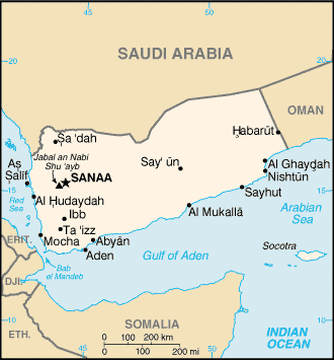
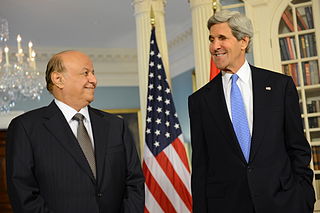
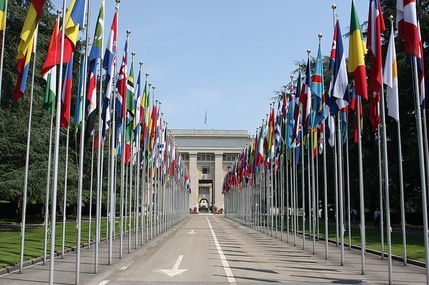
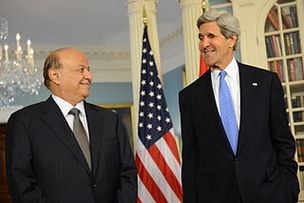
 RSS Feed
RSS Feed

